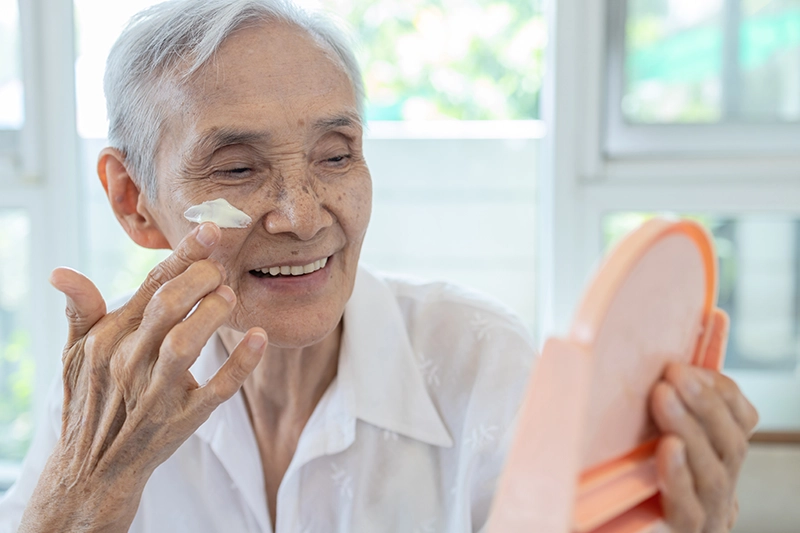Enjoying the Sun Safely: Protecting Senior Health during National UV Safety Month
The warm and sunny days of summer are here! It’s important for seniors to understand the significance of protecting themselves from harmful UV radiation. July is recognized as National UV Safety Month, making it the perfect time to raise awareness about the importance of UV safety. At VitalCaring Group, we recognize the unique needs of seniors and are committed to promoting their well-being. In this blog post, we will discuss five reasons why UV safety matters for seniors and provide additional practical tips so you can enjoy the sun safely this month!
Why UV Safety Matters for Seniors:
- Vulnerable Skin: As we age, our skin becomes more delicate and less resilient to the harmful effects of UV radiation. Seniors may have thinner skin, reduced collagen production, and underlying health conditions that make them more susceptible to sunburns and skin damage. UV safety practices help minimize the risk of skin cancer, premature aging, and other skin-related issues. Be sure to schedule regular skin checks with your doctor, use SPF 30 or higher and wear clothing that prioritizes keeping your skin covered and safe.
- Medications and Sensitivity: Many seniors take medications that can increase their skin’s sensitivity to UV radiation. Certain medications, such as antibiotics, diuretics, and cholesterol-lowering drugs, may heighten the risk of sunburns and allergic reactions. Being mindful of UV safety can help seniors protect their skin while managing their medications effectively. Be sure to talk to your doctor about your medications and possible UV side effects that could be associated with their usage.
- Eye Health: Aging eyes are more susceptible to the harmful effects of UV radiation. Seniors may already be dealing with age-related eye conditions like cataracts, macular degeneration, or glaucoma. Maintain your eye health by practicing UV safety by wearing sunglasses and hats to protect your eyes from excessive sunlight and help prevent further damage.
- Stay Hydrated: Seniors are more prone to dehydration, which can further increase the risk of sun-related health issues. Drink plenty of water throughout the day, even if you don’t feel thirsty. Proper hydration helps maintain healthy skin and supports the body’s natural defense against UV radiation.
- Stay Informed: Keep up-to-date with local weather forecasts and UV index reports. Plan outdoor activities accordingly, choosing times when UV exposure is lower. Stay informed about the latest recommendations for UV safety and share them with family and friends.
National UV Safety Month serves as a vital reminder for seniors to prioritize their health and well-being by practicing UV safety. By following these practical tips, seniors can enjoy the sun safely and reduce the risk of sunburns, skin damage, and related health issues. Remember, it’s never too late to incorporate UV safety practices into your daily routine.

